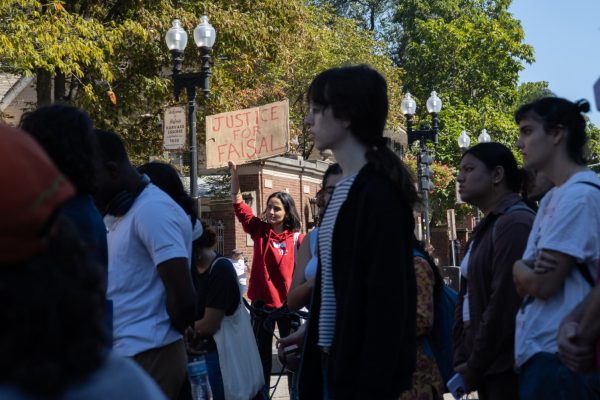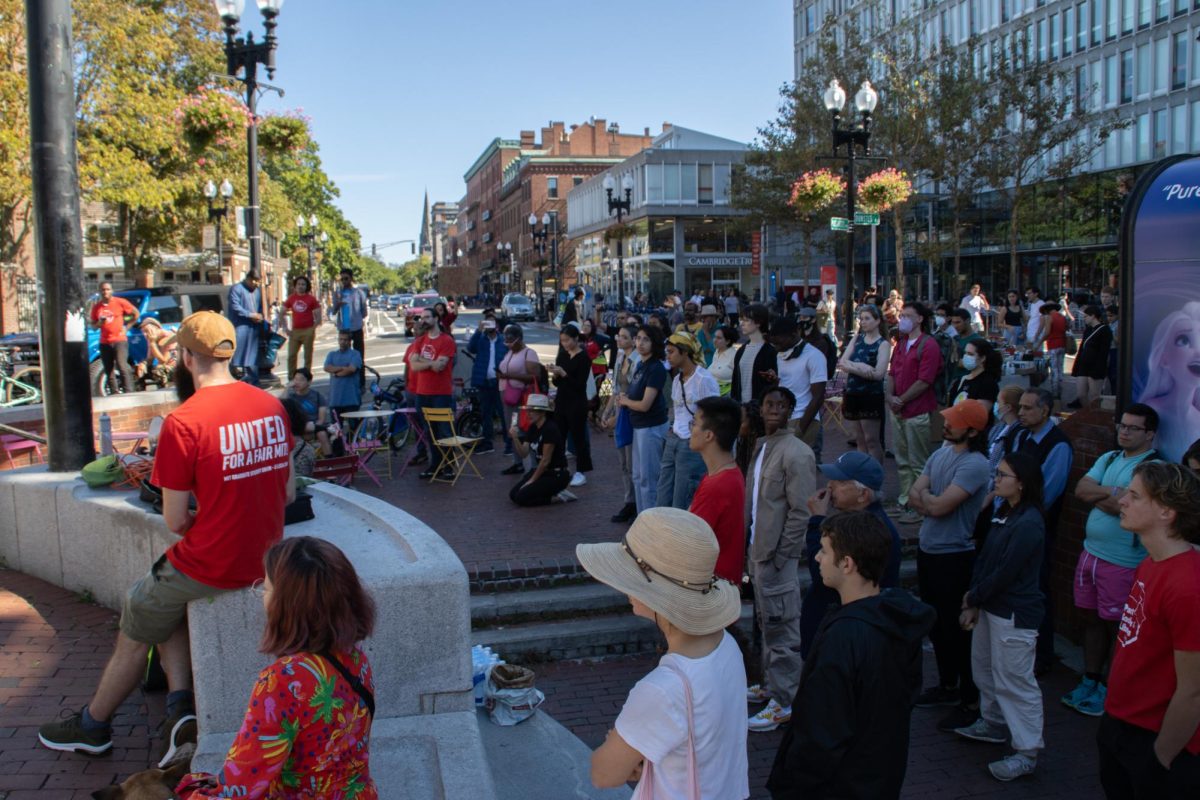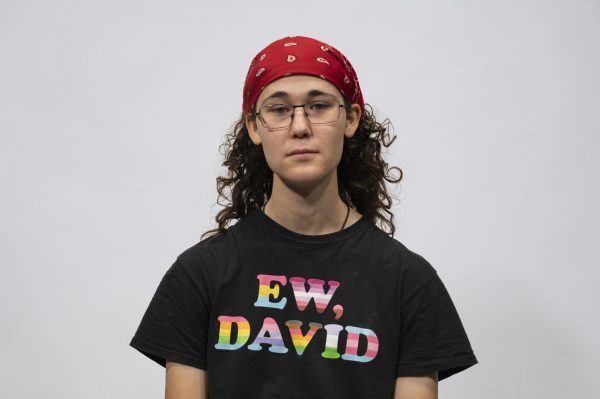Eight months after Arif Sayed Faisal was killed by Cambridge police, local activists and organizers for racial equality staged the latest in a series of rallies to decry the city’s inaction and lack of transparency.
A crowd of over 50 people gathered in Harvard Square Sept. 17, where they called on Cambridge Mayor Sumbul Siddiqui and the Cambridge Police Department to release the names of the officers involved in Faisal’s killing and commit to a more transparent investigation and accountability process.
Faisal was 20 years old at the time of his death Jan. 4, and allegedly ran at Cambridge police officers with a knife in the midst of a mental health episode when he was shot and killed. Cambridge police do not wear body cameras, and further details about Faisal’s death, including the names of the officers involved, have not been released.
Middlesex District Attorney Marian Ryan cited a judge’s ongoing investigation into the matter as a reason for the city withholding information.
Yi-An Huang, Cambridge’s city manager, has pledged to provide the city’ spolice force with body cameras, but local activists have consistently called for further reform, and contested the official narrative surrounding Faisal’s death.
“What you may not know is that Faisal was someone who deeply cared about and showed up for his community,” said Amari Butler, a junior at Harvard University and lead organizer of Harvard’s African and African-American Resistance Organization, in a speech at the rally. “He was involved in several organizations for immigrant youth, including serving as an interpreter at Somerville Welcome Project, and he spoke at a Center for Teen Empowerment peace conference.”
The police killing of Faisal, a Bangladeshi immigrant, has hit close to home for advocacy groups for people of color, and renewed criticism of the Bay State’s progressive rhetoric toward migrants that is betrayed by the hardships they still face in New England.
“He came here with his immigrant family,” said Tanvir Murad, the general secretary of the Bangladesh Association of New England. “He worked hard for a better future. …That day, I saw what happened to him, to his life. We stand together to make this fight stronger, because we want to stop this type of violence. In different parts of the U.S., in different places in Boston … the stories are really the same. But why it’s happening every single time [is] because the communities there are not coming together to support the family.”
The recent rally was the culmination of eight months of continuous organizing by several social justice organizations that have taken up Faisal’s cause. The Party for Socialism and Liberation, or PSL, has bottom-lined most of these rallies and protests, alongside the Bangladesh Association of New England, or BANE, the Boston South-Asian Coalition, Safe Schools Somerville and others.
“It has been over eight months, and still the names of Faisal’s killers have not been released, even though not only the community, but also PERF, [Police Executive Research Forum], an organization made up of police, recommended that they do so,” said Aliyah Chutkan, a sophomore at the Massachusetts Institute of Technology, and a member of the university’s Black Student Union. “Releasing the names of the officers involved in a shooting and all relevant facts within days of the incident has become common practice in cities across America, so why have they still not been released here?”
Activists have repeatedly occupied City Hall and disrupted city council meetings since Faisal’s death, hoping to bring their grievances directly to the city government. On Jan. 29, over 200 activists marched from Somerville High School, where Faisal was a student, to the Cambridge Police headquarters to present their list of demands.
Despite their attempts to seek accountability directly from city officials, and notwithstanding the minor concessions gained in the early days of the campaign, the movement for justice for Faisal seems ready to maintain pressure until the names of the officers involved in Faisal’s death are released, and the Cambridge police force faces reform on an institutional level.
“We keep fighting, fighting, fighting,” said Pervin Chowdhury, president of BANE. “And nothing is done yet — nothing. So I want to thank you guys for supporting us, all of your support, we need it. We have to speak up; if we don’t speak up, this will go under the rug. … Faisal was our kid, your kid, it can happen to any one of you, that’s why we’re fighting. We cannot bring Faisal back, but we can save some other Faisal.”
The mood at the rally was somber, and many of the activists were familiar faces who had attended several of the preceding protests across greater Boston. Organizers and students spoke of the racial discrimination they had faced in their own lives, and mourned Faisal as the latest person of color to die at the hands of police. The rally’s message was clear: The campaign for justice for Faisal is digging in for the long haul.
“We cannot be demoralized by these tragedies,” Butler said in her speech. “Tragedy is inherent to this system, yes, but this system is not inherent to the world. Right now … we’re not outnumbered, we’re out-organized. But if we all come together, unified, and struggle like we are all here today, there’s absolutely no way we won’t win.”









![A demonstrator hoists a sign above their head that reads, "We [heart] our international students." Among the posters were some listing international scientists, while other protesters held American flags.](https://huntnewsnu.com/wp-content/uploads/2025/06/image12-1200x800.jpg)








